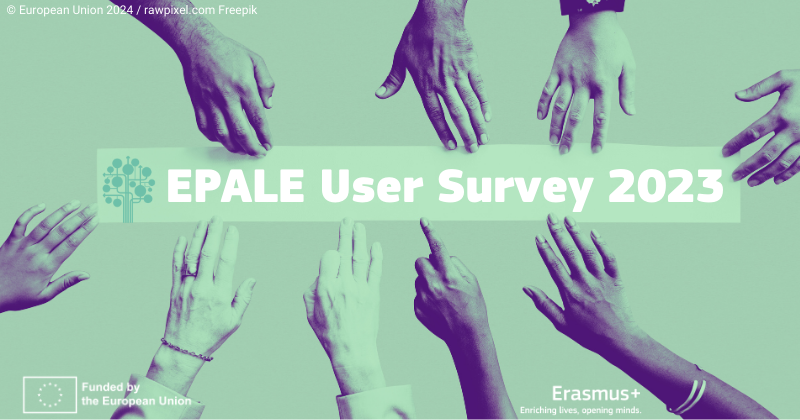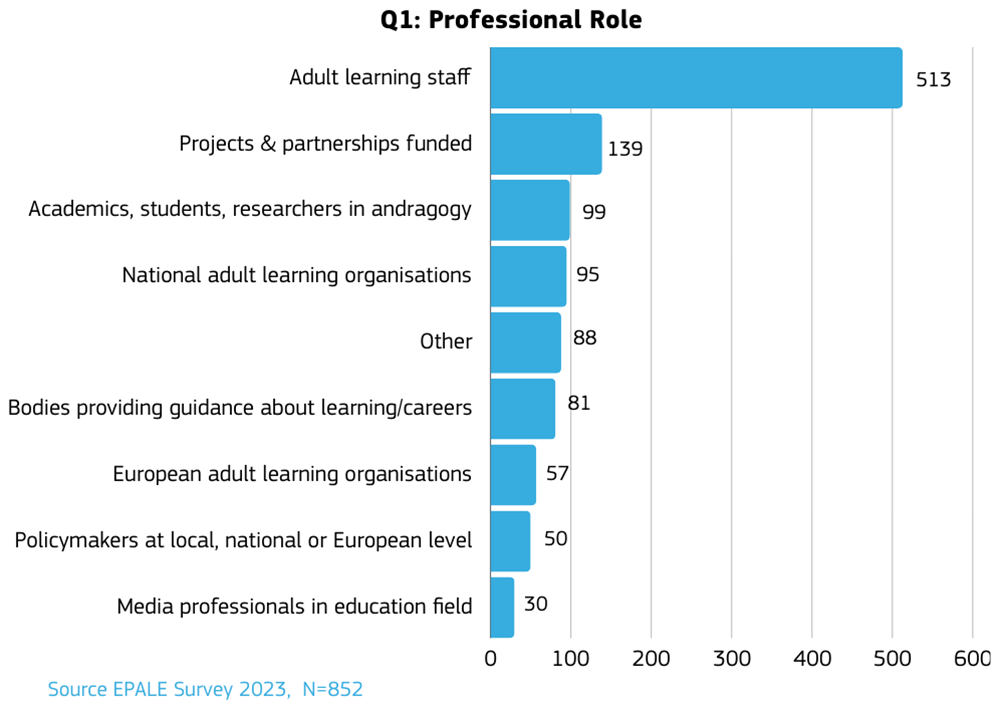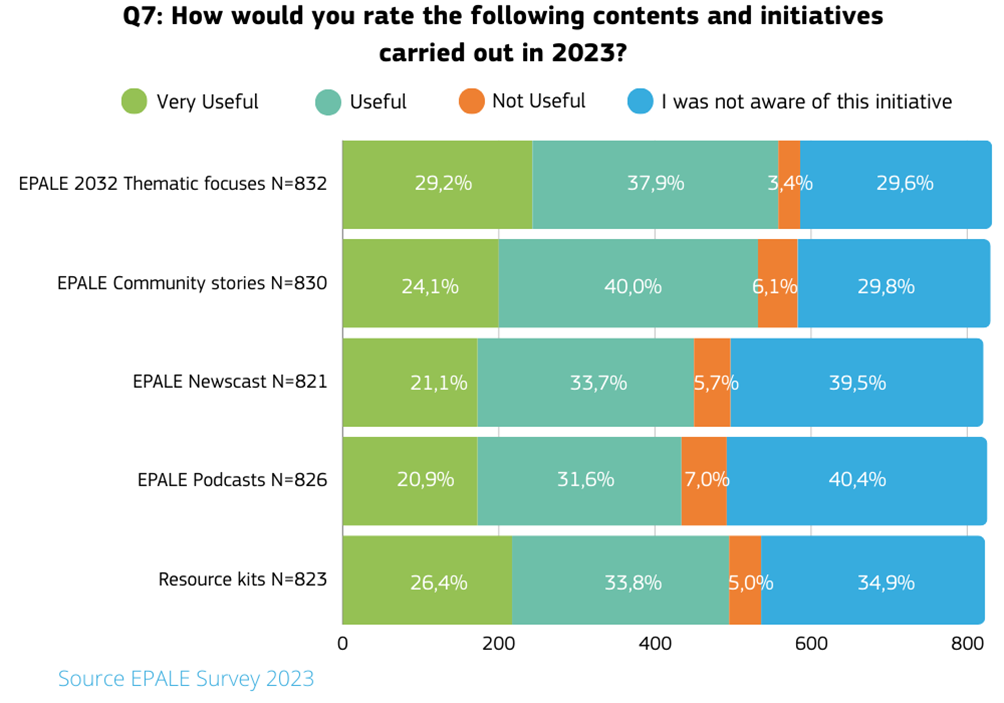How do we keep up? Some hints from the 2023 EPALE Survey

At the end of 2023, the EPALE community participated in a survey meant to explore the different areas of interaction. The survey was available in 32 languages, to better involve all the national communities of adult learning professionals.
The 2023 EPALE survey explored five main areas:
- User demographics (information about their professional role and country of origin).
- User awareness and fidelity (to explore the usage frequency, the awareness and appreciation of the latest content, and our beloved Community Conference).
- User experience (we wanted to assess the efficiency of the registration and log-in procedures, the usage of the EPALE app, the level of interaction with the community, users’ familiarity with and usability of the website features).
- User needs (we love to provide more and better experiences, so we investigated the possible improvements).
With 879 responses collected, this survey had an increase of 34% participants compared to the previous one in 2022.
So, we are now able to see how EPALE keeps up with the expectations of its community. Let’s look at some of the results!
Main highlights
In respect to the user experience of different EPALE features, the features the respondents were more familiar with are the following: finding relevant content such as blog posts, news articles, resources and events (89%), logging in to the website (88%), finding professional upskilling opportunities such as courses, MOOCs and OERs (62%) and uploading contents (62%).
For many users, EPALE is also a place of encounter and exchange. More than half of survey respondents (55%) reported that they have interacted with other EPALE community members through online discussions, a Community of Practice, or by commenting on blog posts, by looking for partners through a search request, or by finding project partners on the platform.
Regarding the usage frequency, 77% of survey respondents declare to use the platform every month, at a minimum. Great result, but you can do even more, dear Community!
Who are the EPALE users?
A high proportion (60%, 513 individual answers) of the EPALE users involved in the survey can be categorised as Adult learning staff (which means educators, teachers, trainers etc.). Professionals belonging to Projects & partnerships funded or seeking funding (139) are accounted for 16% of the overall participants. Academics, students, researchers in andragogy (99) and National adult learning infrastructures, networks, and organisations (95) represent each 11% of the participants.
Responses from other EPALE target groups were slightly lower and ranged between 4-10% of the overall achieved sample (Figure 1).

What do users like the most?
We asked the EPALE users involved in the survey if they were aware of the initiatives launched in 2023 and if they found them useful. The EPALE Thematic Focuses and the related serial initiatives that ran throughout the year, such as the Community Stories, the EPALE interviews, the Resource kits, and the podcasts were the ones that users were most aware and keen of. In fact, they also showed a high level of appreciation for these editorial activities.
In terms of awareness, users that were aware of the above-mentioned initiatives ranged between 60%-70%, depending on each specific initiative. The EPALE Thematic Focuses (70%, 586) and the EPALE Community Stories (70%, 583) were the ones that reached the highest number of respondents.

A warm thank you to all users who responded to the survey!
Well, EPALE is you! And you allowed us to reflect on our strengths and on the challenges, to let us continue working to improve EPALE. A big thank you for your valuable feedback.





ciekawe
Zastanowił mnie, niższy niż zakładałam, odsetek osób reprezentujących środowisko akademickie. Przecież tak wiele ciekawych publikacji z zakresu andragogiki pojawia się na EPALE! Ankieta zawierała również pytania o postulowane zmiany. Czy rok '24 przyniesie jakieś usprawnienia czy nowe funkcjonalności platformy?